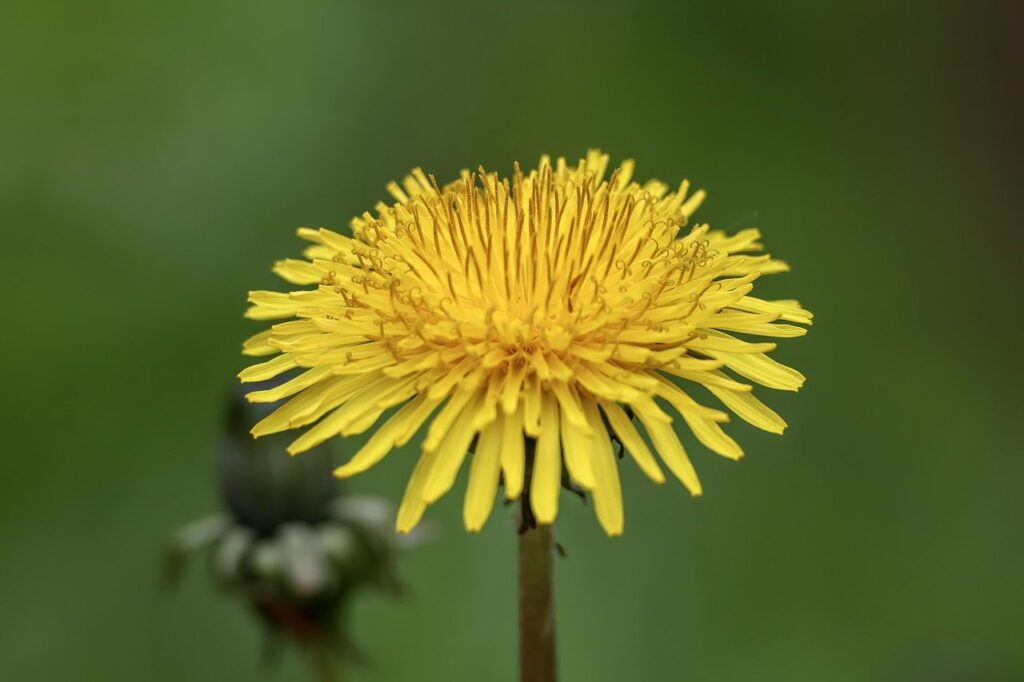I know, I know! Some of you will tell me dandelions are an absolute pain in the butt when it comes to your garden. And I get it! They absolutely drive me crazy too when they spread like wildfire! But dandelions are more than just pesky weeds that grow in your lawn. Did you know that they are actually an edible plant? And that they have a variety of health benefits, ranging from antioxidants to blood sugar regulation?
In this article, I will outline some of the amazing facts and benefits of dandelions, and how you can incorporate them into your everyday diet.
So what exactly are Dandelions?
Dandelions are flowering plants that belong to the Asteraceae family, which is the same family that also includes sunflowers, daisies, and chrysanthemums. They have beautiful, bright yellow flowers that turn into white fluffy seeds that can be dispersed by the wind, and they have green leaves that are serrated and bitter, and long taproots that are brown and woody.
What are some of the health benefits of Dandelions?
Dandelions themselves have been used for centuries as a medicinal herb, and they contain various bioactive compounds that have beneficial effects on different aspects of health. Some of these are:
- They contain Antioxidants: Dandelions are rich in beta-carotene, a precursor of vitamin A, which is an antioxidant that helps protect cells from damage and oxidative stress. Dandelions also contain polyphenols, which are another type of antioxidant. These are found mainly in the flower but also in the roots, leaves, and stems.
- They can help to lower cholesterol: Dandelions may help lower blood lipids, such as cholesterol and triglycerides, which are risk factors for cardiovascular diseases. Dandelions may do this by inhibiting the enzymes that synthesize cholesterol in the liver, and by increasing the excretion of bile acids, which are derived from cholesterol.
- They can help to regulate blood sugar: Dandelions may have antihyperglycemic, antioxidative, and anti-inflammatory properties that may help treat type 2 diabetes. Dandelions may do this by stimulating the secretion of insulin, the hormone that regulates blood sugar, and by enhancing the uptake of glucose into the cells.
- They can help reduce blood pressure: Dandelion leaves are a good source of potassium, a mineral that can help reduce blood pressure. Potassium helps balance the effects of sodium, which can increase blood pressure, and also relaxes the blood vessels, which lowers the resistance to blood flow.
- They are great for your gut health: Dandelion root is rich in inulin, a type of soluble fiber that supports the growth and maintenance of healthy gut bacteria. Inulin can also help improve digestion, relieve constipation, and reduce the absorption of fat and sugar in the intestine.
- Dandelions may also have benefits for liver health, weight loss, anticancer, digestion, immunity, skin health, and bone health. However, more research is needed to confirm the effectiveness and safety of dandelions for these conditions.
So, here are some ways to add dandelions into your diet:
- Drink dandelion root tea or coffee. You can make your own by digging, cleaning, chopping, roasting, and grinding the roots of dandelions. Alternatively, you can buy ready-made dandelion root tea bags or powder from health food stores or online.
- Eating dandelion greens in salads or stir-fries. You can harvest young and tender dandelion leaves from your garden or a pesticide-free area, wash them well, and chop them up. You can mix them with other greens and your favourite dressing for a salad, or sauté them with garlic, oil, and salt for a stir-fry.
- Add dandelion flowers to your dishes by simply plucking the yellow petals from the dandelion heads, discarding the green parts, and using them as a garnish or ingredient. You can even sprinkle them on salads, soups, or casseroles, or bake them into muffins, breads, or cakes.
Dandelions are so versatile and nutritious and you can easily incorporate them into your diet. However, if you do decide to try them, introduce them gradually to ensure you don’t have any adverse reactions or digestive issues from eating them. You should also consult your doctor before consuming dandelions if you have any medical conditions or take any medications, as they may interact with them.
I hope this article has helped you learn more about the wonderful benefits of dandelions. 😊

